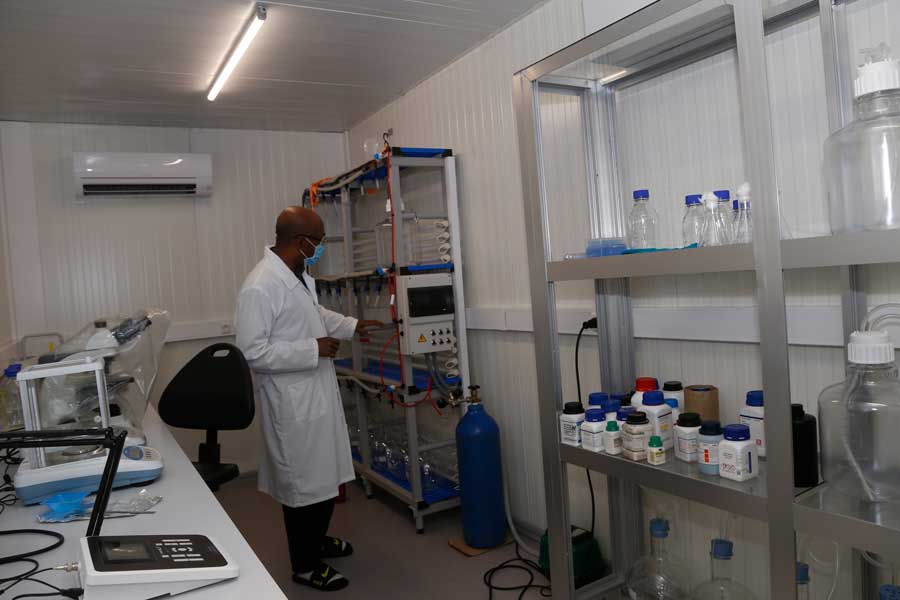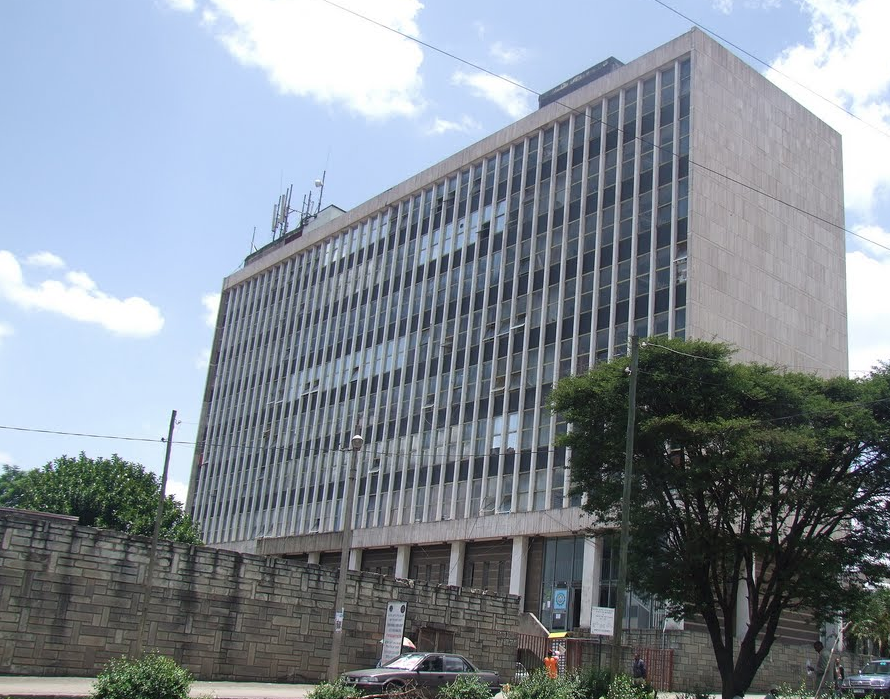
Apr 15 , 2023
By BERSABEH GEBRE ( FORTUNE STAFF WRITER )
A safety document subjecting locally assembled and manufactured vehicles to inspection before they are on the road was open to public comment a fortnight ago.
The standard aims to subject all vehicles to meet the criteria for proper routine checks for the function of speed, oil pressure, battery and water level before registration. Vehicle information documents are to be provided upon an annual inspection.
Imported cars must have certificates from the exporter country, while locally manufactured ones should be documented by the authorized body.
"Document verification is one mechanism of checking the standards," said Yilma Mengistu, standard development director at the Institute. According to him, uniformity aims to address the vehicle's safety concerns related to hazard warning systems, fuel tanks, and tires.
There are 1.3 million vehicles on the roads across the country, according to the data from the Ministry of Transport & Logistics.
Under Mesert Bekele (PhD), the Ethiopian Standard Institute had established a technical committee with 23 members involved in making the standard safety document that was tabled for discussion at Elilly Hotel.
According to Yilma, the standard will be approved by the end of the fiscal year after addressing the issues raised by participants.
The Institute has over 12,000 standard documents serving different purposes. It had set measures for inspection centres to equip their facility with human labour, materials and parking spaces two years ago.
The draft was initiated by the Road Safety & Insurance Fund Administration Agency, which was formed a year ago following the merger of the National Road Safety Council Office, the Insurance Fund Service, and two directorates under the Federal Transport Authority. The Institute has set over 300 mandatory standards related to safety issues.
Representing the Addis Abeba Taxi Owners' Associations, Nuredin Etamo was one of the participants in the meeting. It was formed in 2008 with 13 associations and 4,000 vehicles under its fleet.
He questions the practicality as the standard concerning spare parts should have been put forth before the vehicles.
"That should be prioritised," he said.
There are over 50 inspection centres licensed by the Authority to check the 650,000 vehicles registered under the City Administration.
The recent report from Addis Abeba Driver & Vehicle Licensing Authority revealed that only 48pc passed the annual inspection out of the total vehicles where, almost a quarter of which do not make it to the centre.
The Authority spent the previous 15 months developing a system that connects its central database to the inspection centres to get a report, tracking how many vehicles rightfully pass inspection, with hopes of combating fraudulent activities.
"It was a manual system before," said Firew Demissie, communications head at the Authority.
Inspection centres are cheering for the idea of uniformity, hoping that it will make their work easier.
Girma Getachew, the major shareholder of GG Engineering Installation & Maintenance of Machineries, applauded the attempt to make uniform inspection standards a requirement.
His company was founded eight years ago with 20,000 Br capital, having inspected up to 15,000 vehicles annually between his two centres around the Wessen area.
Girma observes the criteria used between regional states and city administrations were not uniform for locally assembled cars. In contrast, imported ones were not subjected to any form of inspection upon arrival.
"They just came to the centre a year later," said Girma.
Right-handed vehicles will not be accepted when the draft standard is approved.
Girma says the mere ban on right-handed automobiles has thus far exposed drivers to accidents. He proposes to consider the technical nature of vehicles when reversing the seats.
According to officials, the document is prepared considering the air condition and topography of the country that might be upgraded as better technologies are adopted.
Moges Negash, an automotive engineer, said that manufacturers might not consider the altitude, road type and other features of countries like Ethiopia when making the products.
However, the economic status of buyers may not allow the luxury of specification, which may create a difficult ground for the authorities to introduce the standards, according to Moges.
PUBLISHED ON
Apr 15,2023 [ VOL
24 , NO
1198]

Fortune News | Nov 27,2021

Fortune News | Sep 06,2020

Fortune News | Aug 01,2020

Fortune News | Dec 21,2019

Fortune News | Nov 21,2018

Fortune News | Feb 15,2020

Radar | Feb 24,2024

Fortune News | Feb 11,2023

Fortune News | Dec 05,2020

Fortune News | Mar 02,2019

Dec 22 , 2024 . By TIZITA SHEWAFERAW
Charged with transforming colossal state-owned enterprises into modern and competitiv...

Aug 18 , 2024 . By AKSAH ITALO
Although predictable Yonas Zerihun's job in the ride-hailing service is not immune to...

Jul 28 , 2024 . By TIZITA SHEWAFERAW
Unhabitual, perhaps too many, Samuel Gebreyohannes, 38, used to occasionally enjoy a couple of beers at breakfast. However, he recently swit...

Jul 13 , 2024 . By AKSAH ITALO
Investors who rely on tractors, trucks, and field vehicles for commuting, transporting commodities, and f...

Jul 12 , 2025
Political leaders and their policy advisors often promise great leaps forward, yet th...

Jul 5 , 2025
Six years ago, Ethiopia was the darling of international liberal commentators. A year...

Jun 28 , 2025
Meseret Damtie, the assertive auditor general, has never been shy about naming names...

Jun 21 , 2025
A well-worn adage says, “Budget is not destiny, but it is direction.” Examining t...